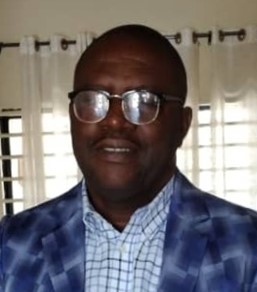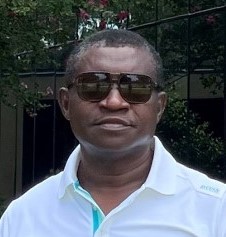in Construction Project Delivery
FEATURED PAPER
By Dr Reuben A. Okereke
Department of Quantity Surveying
Imo State University, Owerri, Imo State, Nigeria
(Corresponding Author)
Dr. Chukwuemeka S. Nwosu
Department of Quantity Surveyiny
Federal Polytechnic, Nekede, Owerri, Nigeria
Arc. Emmanuel O. Ukanwa
Department of Architecture
Imo State University, Owerri, Nigeria
ABSTRACT
An effective system for passing on information and instructions and for receiving feedback is essential for successful project management and control. This study is aimed at assessing the impact of communication among construction stakeholders on project delivery with respect to completion time, cost, client satisfaction and health and safety performance. The objectives were to determine the level of use of communication tools in project communication, determine challenges facing effective communication, and evaluate the effect of effective communication on project delivery. A questionnaire survey, involving thirty five (35) construction stakeholders in Imo State, Nigeria was used. Descriptive statistics and inferential statistics (regression analysis and Friedman ANOVA) were adopted to analyze data obtained. The results revealed that project specifications, project plan, reports, memos, and presentation are the most applied communication tools, while hardware, procedures, terminology and training are the top four factors affecting effective project communications. The study concludes that project communication affects time, client satisfaction, project, and cost performances of building project delivery. To improve project communication, the study recommended the need to close all communication gaps, maximize the use of ICT, and to tailor communication to named stakeholder.
Keywords: Impact, Communication, Construction project delivery, Construction industry.
- INTRODUCTION
1.1 Background of Study
Information and knowledge are transferred and co-ordinated through the participants of the project, commonly including clients, architects, consultants, engineers, main contractors, sub-contractors, and suppliers (Moynihan and Harsh, 2016). Each participant in the project is responsible for a particular functional work during the entire process. To co-operate in the project, these independent participants need accurate and timely information from members of the team to make appropriate decisions and accomplish their work. Therefore, much complex information is communicated and transferred between these participants for task implementation. The information ranges from drawings, reports, to various specifications.
Communication between project participants is identified as one of the critical success factors to facilitate successful completion of the construction projects. (Kwofie et al., 2015; Yong and Mustaffa, 2013). Kwofie et al. (2015) explain five critical factors that contribute to project teams’ effectiveness on construction projects. One factor is effective communication among project team members. Yong and Mustaffa (2013) reveals that ‘commitment and communications’ is one of three major aspects that the stakeholders recognize as critical success factors for Malaysian construction projects. Moreover, numerous studies have highlighted the importance of effective communication to project efficiency and effectiveness (Hoezen et al., 2008; Emmitt & Gorse, 2003; Thomas et al., 1998). Hoezen et al. (2008) confirm that levels of communication effectiveness among project teams significantly contribute to the efficiency and effectiveness of the construction process, and improvement in communication among the teams is the first thing to be considered in project delivery. If there is effective communication among project participants, accurate information will be quickly communicated, and consensus will be easily achieved. Subsequently, it will improve teamwork, reduce conflicts and rework, and contribute to project success. Therefore, effective communication is a widely recognized factor for the success of construction organizations and projects (Yong and Mustaffa, 2013; Meng, 2012; and Agu et al., 2018)…
More…
To read entire paper, click here
How to cite this paper: Okereke, R. A., Nwosu, C. S., Ukanwa, E. O. (2022). The Role of Communication in Construction Project Delivery; PM World Journal, Vol. XI, Issue XI, November. Available online at https://pmworldlibrary.net/wp-content/uploads/2022/11/pmwj123-Nov2022-Okereke-Nwosu-Ukanwa-communication-in-construction-project-delivery.pdf
About the Authors

Dr. Reuben A. Okereke
Owerri, Nigeria
![]()
Q.S. Dr. Reuben A. Okereke, PhD QS & Sust. Dev., MSc. Const. Mgt., MSc. Env. Res. Mgt., P.Dip. Proj. Mgt., H.Dip. QS, BSc. Const. Mgt., FRQS, FIIA, ACIArb, CIPM, MAACEI., is a multi-talented and erudite scholar. A versatile professional with academic qualifications in Quantity Surveying, Project Management, Construction Management and Environmental Resource Management. His Quantity Surveying professional experience of almost three decades spans through his employment with consultancy and construction firms in Lagos, Nigeria, work as Project Manager in the Bank for eight years, services as in-house consultant Quantity Surveyor for several years for the Imo State University Owerri, Nigeria, experience as Consultant Quantity Surveyor in private practice as well as several years of teaching in both the University and Polytechnic. He is currently serving his second term as the head of department of Quantity Surveying, Imo State University, Owerri, Nigeria. He can be contacted at raphicaben2013@gmail.com.

Chukwuemeka. S. Nwosu, PhD
Owerri, Nigeria
![]()
Chukwuemeka. S. Nwosu, PhD is a well-rounded academic and professional Quantity Surveyor, with over two decades of teaching and practice experience. He holds a Diploma in Quantity Surveying, Bachelor of Science (Bsc) honours, Quantity Surveying, Master of Science (Msc), Construction Management, Master of Business Administration (MBA) Finance and Doctor of Philosophy (PhD) Environmental Management (Infrastructural Development Control). He is a registered Quantity Surveyor with Quantity Surveyors Registration Board of Nigeria (QSRBN) and Fellow of the Nigerian Institute of Quantity Surveyors. He is also a member of the Nigerian Institute of Quantity Surveyors Examinations Board. Qs. Dr. Nwosu is a chief lecturer at Federal Polytechnic, Nekede, Owerri and Adjunct Associate Professor at Imo State University, Owerri, Nigeria. Dr. Nwosu can be contacted at snwosu@fpn.edu.ng

Arc Emmanuel Obinna Ukanwa
Owerri, Nigeria
![]()
Arc Emmanuel Obinna Ukanwa, B.Sc. Arch, M Sc Arch, Mnia, Maarches, is a consultant architect and an academic. A Senior Lecturer in the Department of Architecture, Imo State University, Owerri, Nigeria. Former, Head of the department of Architecture, Imo State University, Owerri, Nigeria. Member, Nigeria Institute of Architects, Member, Architects’ Registration Council of Nigeria, Member, Association of Architectural Educators in Nigeria. Consultant architect to Imo State Government on MDGs/CGS projects and Consultant architect to the development of Primary Healthcare Centres in 774 LGAs in Nigeria. Has vast experience in design and construction of projects belonging to private and public sectors. He can be contacted at: emmanuelukanwa6@gmail.com









